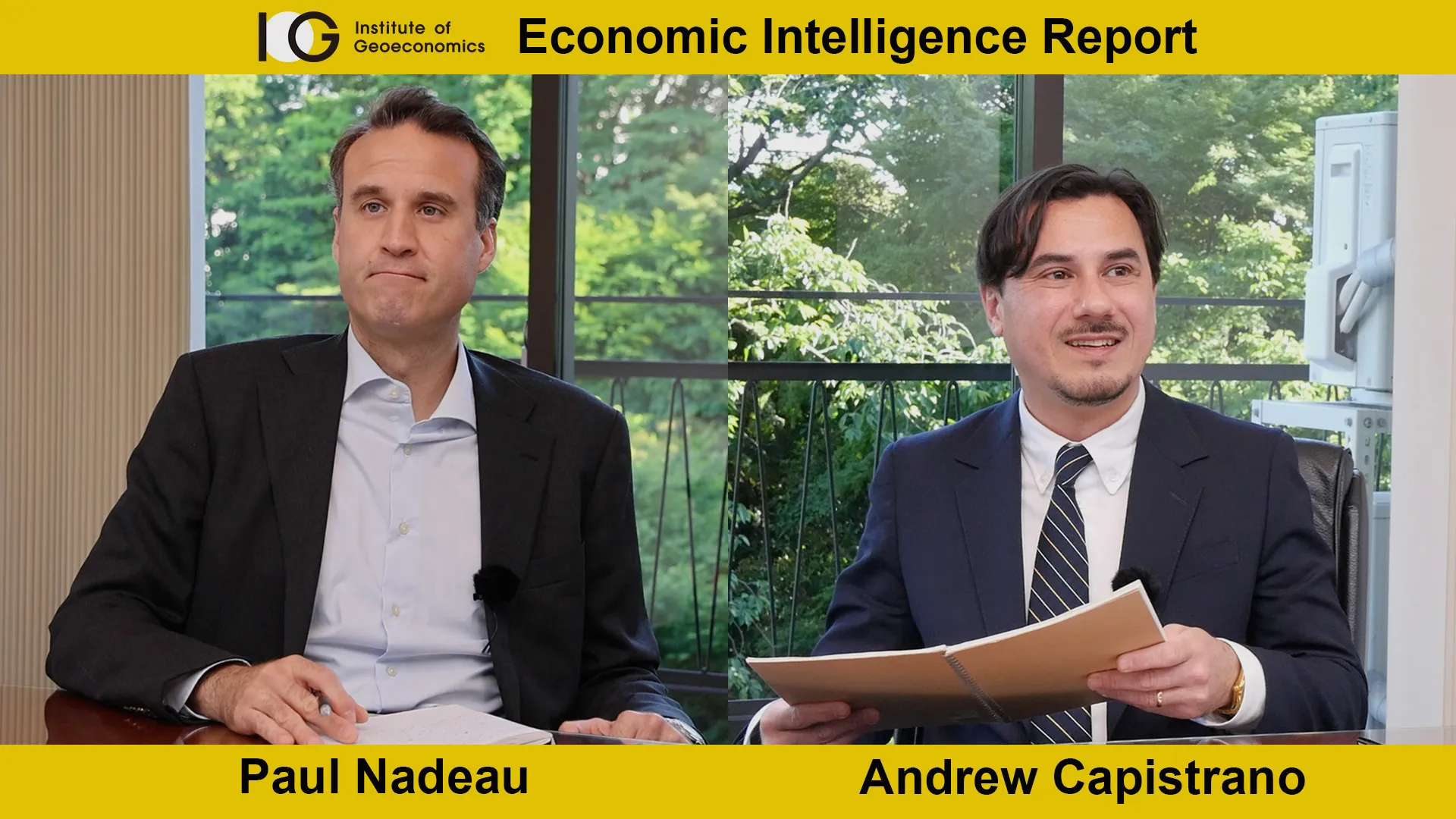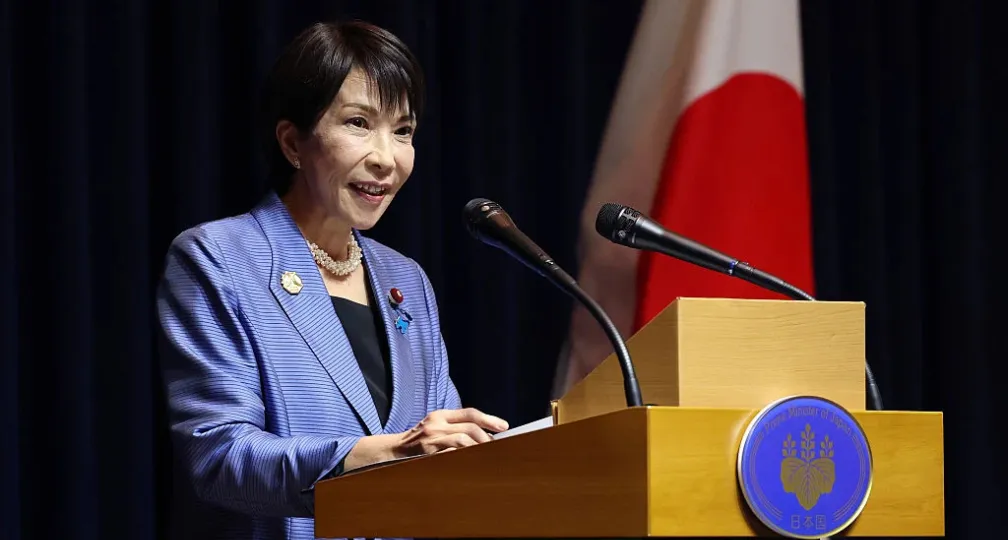IOG Economic Intelligence Report (Vol. 2 No. 15)

The latest regulatory developments on economic security & geoeconomics
Outbound Investment Restrictions: U.S. President Joe Biden announced prohibitions on U.S. firms investing in Chinese firms operating in quantum computing systems and networks, advanced semiconductor firms, and certain firms working on artificial intelligence. U.S. firms will also be required to tell the U.S. government if certain other areas, like legacy semiconductors. The rules, which will go into effect next year, will only apply to new investments, not existing ones. The new rules are intended to prevent investments and technologies from being directed to projects that benefit the Chinese military. U.S. officials have said they expect to begin pressing foreign governments to implement similar rules in the future.
Trilateral Collaboration on Economic Security: U.S. President Biden, Japanese Prime Minister Kishida Fumio, and Korean President Yoon Suk Yeol concluded a trilateral summit at Camp David in Maryland on August 18. Among the deliverables are a new supply chain early warning system through periodic information exchanges, a Trilateral National Laboratories Cooperation to advance cooperation in advanced computing, AI, and more, a Disruptive Technology Protection Network to expand collaboration, best practices, and information sharing on technological security across enforcement agencies, as well as collaboration on technological standards.
New Antidumping Duties for Steel: The U.S. Commerce Department’s International Trade Administration announced on August 18 that it would impose preliminary antidumping duties on tin-plated steel imports from Canada, China, and Germany, sparing duties on imports of tin mill steel used in food cans, aerosol cans, and more and imported from Britain, the Netherlands, South Korea, Taiwan and Turkey. The review was initiated in February at the request of Ohio steel manufacturer Cleveland-Cliffs and the United Steelworkers who alleged foreign dumping in the tin-plate sector.
Congressional-Executive Wrangling on Section 232: Mike Gallagher (R-WI), chair of the House Select Committee on China and Don Beyer (D-VA) of the House Ways & Means Committee re-introduced legislation, the Congressional Trade Authority Act, that would establish congressional authority over section 232 tariffs by requiring congressional review of White House use of this mechanism. Section 232 of the Trade Expansion Act of 1962 allows the president to impose tariffs on imports if they are “being imported into the United States in such quantities or under such circumstances as to threaten or impair the national security” and is the legal authority by which the Trump administration imposed tariffs on Chinese steel imports in 2018. The measure was first introduced in 2019 but no action was taken.
Mexico Imposes Duties on Steel: Mexico announced that it would temporarily raise tariffs on steel imports, from 15 percent to 25 percent, from countries from whom it does not share a free trade agreement until July 31, 2025. While the move is seen primarily as an attempt to counter steel imports from China, it also targets imports from India and South Korea. The United States praised Mexico’s decision, with USTR stating that the United States “looks forward to continuing discussions with Mexico to address the recent surge of imports of steel and aluminum products into the United States and to ensure greater transparency with regards to Mexico’s steel and aluminum imports from third countries.”
Progress on U.S.-Taiwan Trade Initiative: The United States and Taiwan concluded the second round of negotiations under the U.S.-Taiwan Initiative on 21st Century Trade that was initiated earlier this year. According to Taiwan’s Office of Trade Negotiations, the sides discussed food security, labor rights, and joint conservation efforts.
Analysis: Don’t Blame Domestic Politics for the Direction of Biden’s China Policy
The Biden administration’s approach to China is proceeding apace, with new rules on outbound investment to China announced this month, following on export controls on advanced semiconductor manufacturing equipment last year, and more (including steps that the administration hasn’t taken, like removing Trump’s 2018 tariffs on Chinese steel). Given that these are pretty significant steps with a lot of knock-on effects towards the world’s second-largest economy in a setting that features a genuine risk of escalation, even (though unlikely) to the point of war, the strategy is going to be scrutinized and there will inevitably be plenty of people who find it wanting.
For those people, if the Biden administration’s China strategy seems less-than-ideal or even irrational, chances are one of the first places those people look for blame is domestic politics. In this argument, the main reason the Biden administration is too hawkish/too dovish/too etc. is because there’s a domestic audience that they’re trying to appease or they’re afraid of blowback from a critical audience that they’d rather not antagonize. If not for domestic politics, the reasoning goes, the Biden administration’s policy might look closer to the ideal policy.
There’s certainly something to the argument. Trump’s 2018 steel tariffs don’t happen without the U.S. steel industry complaining long and loud about undervalued steel imports from China and the Biden administration probably doesn’t reaffirm those tariffs without concerns about antagonizing interests in what will probably be battleground states in the 2024 presidential election. Politicians of all parties will use foreign policy issues in their statements, take up certain causes, and submit legislation out of genuine interest and concern, in response to constituent concerns, and to signal where they stand on critical issues. Preparing a member of Congress for a media availability almost always includes talking points on the international issue of the day. Simply put, foreign policy issues matter to domestic audiences, so it’s reasonable to assume that decision makers will craft their approach to foreign issues with an eye towards domestic politics.
The problem is that it’s easy to take that argument too far. While there’s a relationship between domestic politics and foreign policy, voters, domestic audiences mostly just want leaders to show competency on foreign policy issues and don’t usually have many preferences beyond that. They aren’t watching for an administration, whether that’s Trump or Biden or whoever, to deliver their preferred China policy because the average voter doesn’t have one. Voters aren’t concerned about how much or how little the proposed outbound investment rules cover (and outside of stakeholders and experts – both pretty small audiences – and most people probably aren’t even familiar with the expression “outbound investment”). Details aren’t as important to the domestic audience so much as the ability to demonstrate that someone knows what they’re doing and can broadly maintain American interests.
Naturally, that also means that foreign policy issues can become politicized. The response to the proposed outbound investment rules offer a good illustration – the announced rules are more strict than a similar measure in the Senate that contained no investment prohibitions after congressional Republicans pressed to scale back the proposed legislation, yet other congressional Republicans, like House Foreign Affairs Committee Chairman Mike McCaul, scolded the Biden administration for not going far enough. Even if voters may not have strong preferences, there’s still a drive for political actors to create costs for given decisions.
That’s especially true these days. In a polarized political environment like the United States, the parties and their supporters are more strongly divided, and incentives push them towards differentiation. But in this case, the incentives are negative (imposing costs on decisions) than positive (incentivizing certain policy choices). There’s little hope for a Democratic administration in trying to adopt a hawkish China policy in the hopes of winning over conservative hawks because they’re not in the business of giving rewards or being won over these days. The odds are greater that foreign policy issues, even something that’s ostensibly bipartisan like China policy, will become used as wedge issues to divide parties rather than something unifying. The idea that an external threat, like China’s rise, could be exploited to foster bipartisan unity doesn’t hold up either – research by Duke University’s Rachel Myrick has shown that polarization isn’t explained by the absence of an external threat, so it’s hard to see how leveraging a threat could restore bipartisanship (and it’s not even clear that’s a goal political actors actually want to pursue). Complaining about domestic politics intervening in policy is like complaining about the summer humidity in Tokyo – it’s part of the environment.
So it’s correct that domestic politics exerts pressure on foreign policy decision making by raising or lowering the costs of certain choices, though for reasons that have less to do with the specifics of a given policy direction and a lot to do with the role of polarization in American politics. But the idea that domestic politics is the variable that pulls strategy away from an ideal form doesn’t work. If the Biden administration is deviating from a hypothetical “right” course on China policy, it’s probably because they actually believe in what they’re doing rather than trying to cater to domestic politics.
Disclaimer: The views expressed in this IOG Economic Intelligence Report do not necessarily reflect those of the API, the Institute of Geoeconomics (IOG) or any other organizations to which the author belongs.
API/IOG English Newsletter
Edited by Paul Nadeau, the newsletter will monthly keep up to date on geoeconomic agenda, IOG Intelligencce report, geoeconomics briefings, IOG geoeconomic insights, new publications, events, research activities, media coverage, and more.


Visiting Research Fellow
Paul Nadeau is an adjunct assistant professor at Temple University's Japan campus, co-founder & editor of Tokyo Review, and an adjunct fellow with the Scholl Chair in International Business at the Center for Strategic and International Studies (CSIS). He was previously a private secretary with the Japanese Diet and as a member of the foreign affairs and trade staff of Senator Olympia Snowe. He holds a B.A. from the George Washington University, an M.A. in law and diplomacy from the Fletcher School at Tufts University, and a PhD from the University of Tokyo's Graduate School of Public Policy. His research focuses on the intersection of domestic and international politics, with specific focuses on political partisanship and international trade policy. His commentary has appeared on BBC News, New York Times, Nikkei Asian Review, Japan Times, and more.
View Profile-
 Japan’s Sea Lanes and U.S. LNG: Towards Diversification and Stabilization of the Maritime Transportation Routes2026.02.24
Japan’s Sea Lanes and U.S. LNG: Towards Diversification and Stabilization of the Maritime Transportation Routes2026.02.24 -
 Fed-Treasury Coordination as Economic Security Policy2026.02.13
Fed-Treasury Coordination as Economic Security Policy2026.02.13 -
 What Takaichi’s Snap Election Landslide Means for Japan’s Defense and Fiscal Policy2026.02.13
What Takaichi’s Snap Election Landslide Means for Japan’s Defense and Fiscal Policy2026.02.13 -
 Challenges for Japan During the U.S.-China ‘Truce’2026.02.12
Challenges for Japan During the U.S.-China ‘Truce’2026.02.12 -
 India and EU Sign Mother of All Deals2026.02.09
India and EU Sign Mother of All Deals2026.02.09
 Orbán in the Public Eye: Anti-Ukraine Argument for Delegitimising Brussels2026.02.04
Orbán in the Public Eye: Anti-Ukraine Argument for Delegitimising Brussels2026.02.04 Fed-Treasury Coordination as Economic Security Policy2026.02.13
Fed-Treasury Coordination as Economic Security Policy2026.02.13 When Is a Tariff Threat Not a Tariff Threat?2026.01.29
When Is a Tariff Threat Not a Tariff Threat?2026.01.29 Oil, Debt, and Dollars: The Geoeconomics of Venezuela2026.01.07
Oil, Debt, and Dollars: The Geoeconomics of Venezuela2026.01.07 India and EU Sign Mother of All Deals2026.02.09
India and EU Sign Mother of All Deals2026.02.09














